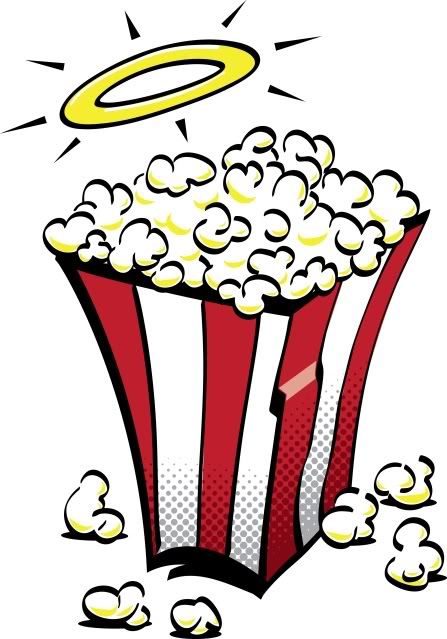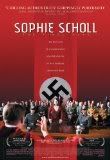
June 8, 2008
Sophie Scholl - The Final Days (2005)
Should I see it?
Yes
Yes
Short Review: A heart wrenching work about keeping one's faith while confronting one's fate.
This is a gem. As the title explains, this film focuses on the last six days of famed anti-Nazi protester Sophie Scholl. Scholl (Julia Jentsch,) who’s life ended at the age of twenty-one. She was executed by the Nazi regime along with her brother Hans and friend Christoph Probst. With her execution, she is forced to trade her life for her ideals.
Scholl and her brother led a group of student protesters known as die Weiße Rose (The White Rose.) This group of five students and one professor wrote leaflets denouncing the Nazi party. In an act youthful stupidity, the group ups the ante by distributing leaflets in broad daylight. This act of brazenness is costly as they are all captured and detained by The Gestapo.
The film’s strength comes in presenting the interrogations of Scholl. These scenes not only provide some of the best interrogation scenes made in a very long time, but also perform a brilliant job of comparing and contrasting worldview. On one hand we have the Lutheran Scholl whose view of the world is determined by Christian principles. Her faith informs her decisions and actions. While she initially attempts to defend her family and friends and deny the charges of high treason, she eventually relents and accepts responsibility for her deeds.
On the other side of the argument is Gestapo functionary Robert Mohr (Gerald Alexander Held.) Mohr represents the Nazi worldview. He attempts to defend his desire for the Nazi philosophy to be correct. As the two verbally spar, it is really the two worldviews having a battle of ideas. On one side of the table is Scholl’s slightly watered down Christian ethos and on the other is Mohr’s sputtering belief in Hitler’s promises of a man made paradise. The interrogation scenes alone are worth the price of admission. They are masterfully written and acted to perfection.
Beyond the interrogation scenes, the film also does a wonderful job of showing the wheels of “justice” in action. Scholl is hurried through the procedures of the legal system as if she were just another widget coming down the assembly line. There’s hardly a moment for human interaction or thought. The Nazi machine was a massive rubber stamp regime that utilized the bureaucratic tools to dehumanize the process of killing people. Once Scholl gets caught in the machine her doom is inevitable.
In the context of the film, the bureaucracy expresses the lack of justice in this world. Scholl’s beliefs are based in God and his ultimate justice. His law is eternal and consistent. The feeble law of man is hindered by the sway of man’s inclinations. Yes, the legal system that killed Scholl was a functioning organ, but it was poisoned by the sickness that is Nazism. Scholl’s beliefs are consistent because she relies on God for her direction, not the machinations of man.
This is an absolute must see film. The script by Fred Breinersdorfer is pithy and direct. Direct is a good word for this whole production. Director Marc Rothemund has the sense to allow the events unfold and let the story speak for itself. Since the piece is rooted in the actual East German archival documents of the case and interviews with witnesses to these final days, Rothermund was wise to allow the story to tell itself.
I highly suggest seeing this film as soon as you can. A good film is a rare thing and you should treat yourself when the option arises. Even though I ramble about worldview, the theological elements in the piece are not too preachy for those of you who are wary of such things. Conversely, they are obvious enough for those of us who appreciate them to catch them as they arise. There is a fine balance to be found in this production. While it is difficult to see a person unfairly executed, we can learn from Scholl’s example and bravery.
Related Reviews:
German Movies
Der Tunnel (The Tunnel) (2001)
Downfall (2004)
Das Leben Der Anderen (The Lives of Others) (2006)
Other Critic's Reviews:
Reel.com
Monsters & Critics
Click here to buy your copy of
You Are What You See and learn
to change the world from your couch
Labels: Christians, film, Julia Jentsch, movie review, Nazis, Sophie Scholl
Share
Previous Posts




Good News Film Reviews LLC 2004-2010 - used with permission
Images, video and titles are the property of their respective copyright holders. Good News Film Reviews LLC claims no ownership or connection to them.
The views expressed on this site are not the opinion of any advertiser or external entity.
While we take care to only link to responsible entities, Good News Film Reviews LLC takes no responsibility for the content linked from this site. There are sharks in the waters. Surf at your own risk.
The Template is generated via PsycHo and is Licensed.






















5 Comments:
sounds very interesting. Would you say it's appropriate for, say, a church youth group?
I'd advise pre-screening since I don't know your youth group.
It would be good for teens to see. There are some great messages to be taken away and its always good for them to see what its like when someone puts their faith into practice.
Scott,
Great review. I agree. One of those rare gems you stumble upon that you wish had gotten more publicity.
Acting, script, cinematography, music, directing. Everything worked together to create a great piece of cinema and social commentary. And as you point out, a great representation of the superiority of God's wisdom over man's without being preachy.
This was a great film and your review is excellent, though there is one small correction to be made. Ms. Scholl was a Lutheran and not Catholic as claimed in this article.
Thank you, Chuck, noted and corrected.
Post a Comment
<< Home